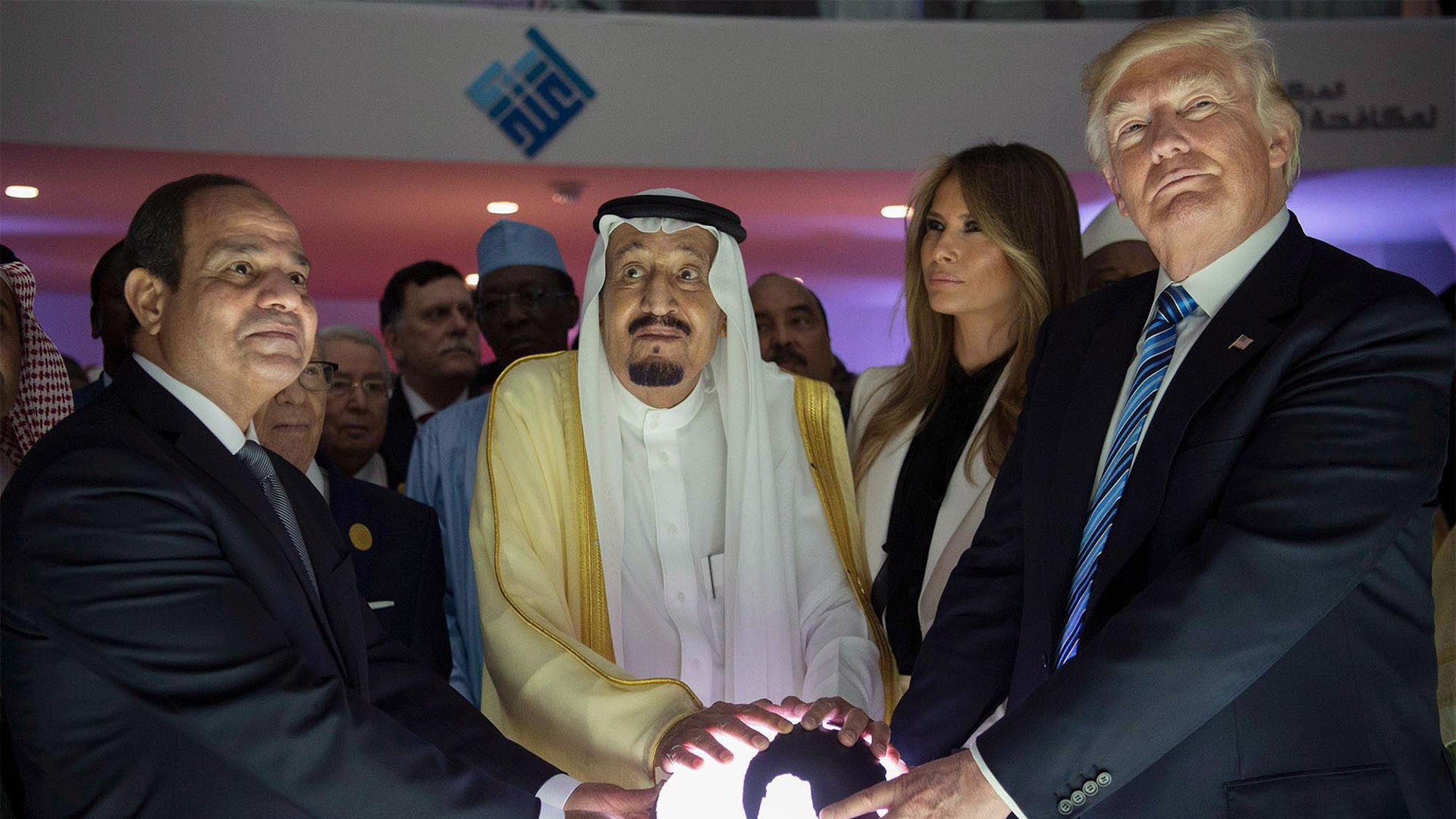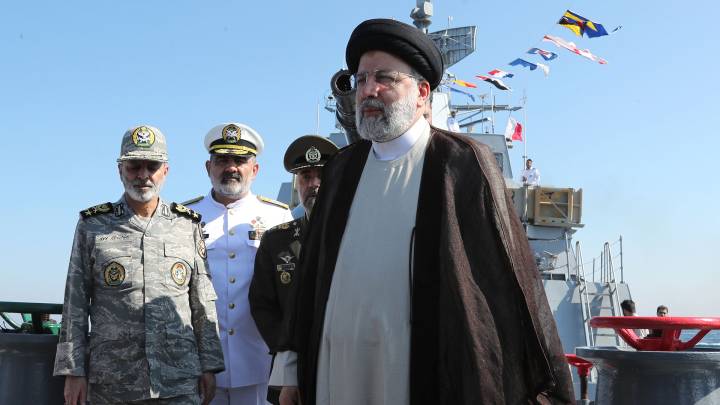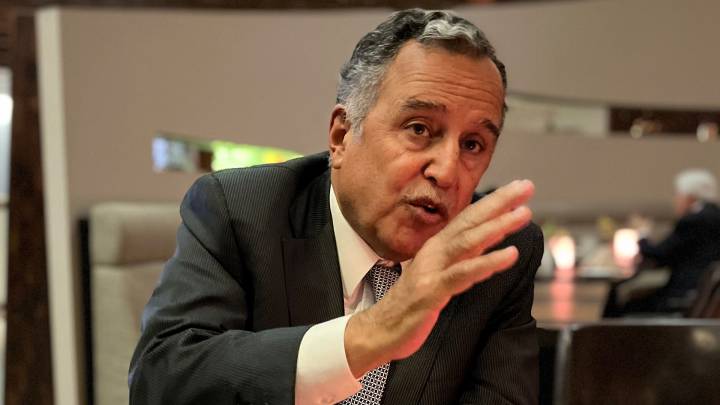Donald Trump will leave the White House, but the alliance of autocrats in the Middle East with the far right in the West is here to stay.
The assassination of Saudi Journalist Jamal Khashoggi in 2018 dominated the American and international news cycles. One phenomenon that took place at the same time yet was overlooked was an online smear campaign against Khashoggi himself. Trump’s conservative allies in the US accused the murdered Saudi journalist of secretly being an ally of the Muslim brotherhood and a sympathizer of Islamist terrorists. The majority of these accusations were fabricated online by far right figures in order to defend the Trump administration’s lack of action regarding the issue.
This coincided with an online trolling campaign organized by the Saudi regime in response to the global outcry. This is just one example of a significant phenomenon that has taken place in the last decade. The phenomenon in question is a burgeoning new alliance between two reactionary political forces. The first are the dictatorships of the Middle East and second are the Western far right politicians, political parties and movements. The two sides have a great deal in common and share a number of mutual interests.
The 2010s witnessed an increase in lobbying activity carried out by many Middle Eastern governments regardless of their systems of government and ideological orientation. This increase was caused by the Arab revolts that began in 2011 and their fallout. From the perspective of these governments, the challenges posed by popular revolts in the region pose an existential threat that can only be dealt with sheer force and increased oppression, even more so than what was found before 2011.
There is an ideological dimension behind The Western far right’s willingness to receive support from Middle Eastern dictatorships, in addition to its immediate material benefits.
Some of these dictatorships, such as those of Saudi Arabia and Iran, might engage in a geo-political rivalry in the Middle East, yet they all use their resources to quash any popular movement that calls for greater freedoms. Commentators who follow the region often speak of an alliance made of governments repressing popular movements as a “Counter-Revolutionary Bloc”.
As the various regimes in the region faced pressure from the local populations in the latter’s call for democracy, the former sought to cultivate sympathetic audiences in the West and court political actors who are also hostile to the Arab uprisings.
The first governments to commence this form of outreach were those that faced internal upheaval (such as Egypt), followed by governments (such as Iran, Saudi Arabia and the UAE ) that took part in the suppression of revolts in other countries. These governments justify their crackdown on anti-authoritarian movements and critics in the region to Western audiences through the prism of combating “Islamist terrorism”, a prism through which many Westerners view the Middle East .
The rise of the neo-fascist far right onto the political scene in Western democracies presented new opportunities for Middle Eastern governments to shape Western public opinion in their favour. In fact, the regimes and their constituencies share many views and beliefs of the Western far right, which range from hostility to refugees, dissidents and diversity of all kinds to emphasis on establishing a monolithic society that pledges its allegiance to a an autocrat. As for the Western far right, there is an ideological dimension behind its willingness to receive support from Middle Eastern dictatorships, in addition to its immediate material benefits.
The Assad regime in Syria has forged alliances with various far right groups such as the British National Party (BNP) and the Greek Golden Dawn from the early stages of the Syrian war.
According to the Western far right, the world is populated by different “races” that are all engaged in a vicious struggle for wealth and resources. The “White” race has once been dominant, but it has been weakened in recent decades by egalitarian policies that aimed to assist traditionally marginalized groups. As long as these marginalized groups continue to benefit from a democratic political system, “Whites” will only become more vulnerable. Thus, democracy becomes a hindrance to the “White” population which needs to be dismantled and only an autocrat who will look after “Whites” can be beneficial .
Many of these ideas are the basis of what is called “The Great Replacement” theory, which stipulated that the West is demographically threatened by different populations from Africa, South America and Asia through immigration. Islam and Muslims are particularly viewed as existential threats to the West and figures such as Steve Bannon predict that the West and Islam are destined to clash for decades to come.
This is why Islamophobia is central to the far right and it compels them to be sympathetic to governments that oppress Muslim majority societies. The authoritarianism of Middle Eastern dictatorships and their rejection of pluralism and egalitarianism are also characteristics that the Western far right find appealing. Given their commonalities, it is little wonder that the two sides will join forces.
One dictatorship that has been active in cultivating ties with the neo-fascist alt-right in the West has been the Assad regime in Syria which forged alliances with various far right groups such as the British National Party (BNP) and the Greek Golden Dawn from the early stages of the Syrian war. One of the means through which Assad draws support from the far right is by nurturing the latter’s hostility towards refugees, many of whom are Syrians who fled the conflict in their country to Europe and elsewhere.
This explains why it is common to see political groups such as the AfD in Germany, the National Rally in France and individuals such as Richard Spencer and Alex Jones defend the Assad regime and whitewash its record of committing war crimes against Syrians. Some of the participants of the 2017 “Unite the Right” rally in Charlottesville even chanted pro-Assad slogans and displayed its iconography at the rally while former Ku Klux Klan leader David Duke has often praised and expressed admiration for the Syrian dictator on numerous occasions.
More recently, Duke attended the New Horizons conference, which is organized by political and security figures of the Iranian regime and held annually in Tehran and it is often attended by far right figures and groups from Western countries.
For Tehran, the value of the New Horizons conference lies in its potential to draw support from individuals and groups who can become politically influential in their own countries and act in a manner that is favourable to Iran.
For Tehran, the value of the conference lies in its potential to draw support from individuals and groups who can become politically influential in their own countries and act in a manner that is favourable to Iran. An example of a far right group that is supportive of the Iranian regime is the National Rally in France. The party praised the regime and used its capacity in the European parliament to defend it over its human rights violations.
The National Rally, along with its allies of the “Europe of Nations and Freedom” (ENF) group in the European Parliament, often defend Iran’s regime by criticizing the EU’s own relationship to Saudi Arabia as a form of double standard, despite the fact that the National Rally and its parliamentary allies have themselves in 2016 refused to support legislation to stop selling weapons to Saudi Arabia over its war crimes in Yemen.
Other parties that maintain relations with the Saudi regime include the Italian Lega party, the Sweden Democrats and the Danish People’s Party. The National Rally’s leader, Marie Le Pen, has also displayed support for the Lebanese political establishment and sought political and financial support from Egypt and the UAE. The latter in particular has fostered ties to far right groups and figures in order to promote its agenda in the West.
The coalition between Middle Eastern autocracies and the Western far right has implications on both the Middle East and Western democracies themselves. In Europe, the current anxiety over refugees and migrants enhances the far right’s political position. One of the proposals that these groups offer to deal with refugees and migrants is to support Middle Eastern governments even though many are fleeing the repression carried out by those same governments.
During the current COVID-19 pandemic, many far right figures that defend the Assad regime and smear its critics are now pushing conspiracy theories regarding the coronavirus in Western countries in order to undermine trust in public health responses to the virus.
The autocracies of the Middle East will likely adjust to the new political reality caused by the US presidential election, yet they will also maintain their ties to the Western far right.
The Western far right also promotes the narrative developed by Middle Eastern regimes regarding the threat posed by political Islam and the necessity to suppress it everywhere. This narrative does not distinguish between Political Islamism as an ideology and religiosity in an Islamic context. One result of this is that many Muslims in the West could be perceived to be radicals who are willing to cause terror which in turn results in their stigmatization.
In addition, critics of Middle Eastern governments and their Western allies have also become targets. For example, the UAE, Saudi Arabia and Egypt orchestrated a media and internet smear campaign against lawmakers from the Democratic Party such as Rashida Tlaib and Ilhan Omar after the US midterm elections in 2018 which also coincided with similar attacks which came from American conservative quarters.
While Trump lost the 2020 presidential election and the Presidency will take an opposite approach under Joe Biden, the main tenets of far right ideology are still appealing to many Americans. Although this outcome is a setback for the far right in Europe, it can still rely on other issues such as Islamophobia and the economic consequences of lockdown measures (just to name a few) to remain politically relevant.
The autocracies of the Middle East will likely adjust to the new political reality caused by the US presidential election, yet they will also maintain their ties to the Western far right due to their mutual interests. All of this illustrates that this alliance is likely to be entrenched in the foreseeable future and it will use its resources to undermine the rights of anyone it deems a threat.
What both parties rely on to nurture their new alliance is a negative view of the Middle East in Western countries. The region and its peoples are seen as an irrational and wild mob that awaits the opportunity to unleash chaos which will ultimately undermine the national security of Western states. As long as the international community continues to solely see the Middle East as a source of instability, autocratic actors in both the Middle East and the West will continue to flourish to the detriment of the aspirations of democrats in both regions.
Sheriff Tabba is an International Affairs Analyst who specializes in Middle Eastern Politics.




